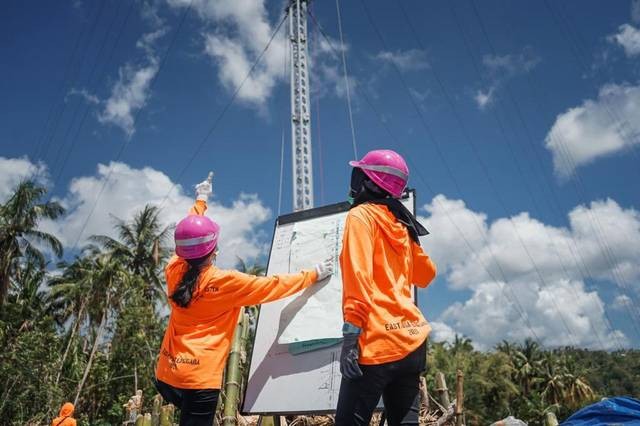Tentang KamiPedoman Media SiberKetentuan & Kebijakan PrivasiPanduan KomunitasPeringkat PenulisCara Menulis di kumparanInformasi Kerja SamaBantuanIklanKarir
2025 © PT Dynamo Media Network
Version 1.101.0
Konten dari Pengguna
Beyond Women's Representation: Gender Perspectives on Energy Transition
14 Maret 2024 7:26 WIB
·
waktu baca 4 menitTulisan dari Leonardo tidak mewakili pandangan dari redaksi kumparan

ADVERTISEMENT
In November 2023, several activists from Koalisi Masyarakat Peduli Keterwakilan Perempuan complained Komisi Pemilihan Umum (KPU) or Election Commision to Badan Pengawas Pemilu (Bawaslu) or Election Supervisory Board over the Peraturan Komisi Pemilihan Umum (PKPU) 10/23. This regulation contains a technical mechanism for women's representation in the 2024 elections. In several electoral districts, rounding women's representation is possible if it's less than 0.5. This was protested because it has the potential to reduce the 30% minimum number of women's representation. Even, they also had taken legal action by filing a lawsuit to the Supreme Court or Mahkamah Agung.
ADVERTISEMENT
This phenomenon is a general effort made to ensure gender equality between women and men (Rottenberg, 2014). The representation of women in strategic positions is considered to be able to support gender equality. One of them is in the policy-making regarding energy transitions.
A study highlight the underrepresentation of women in the renewable energy industry and decision-making (Fitriyanti, et al., 2022). For example, women workers in the energy industry are only 32%, and women representation from positions directly responsible for national energy policies and programs is only 6% (Energy, 2020; IEA, 2018). All of these studies agree that the presence of women as formulators and decision-makers in the energy industry can provide a gender perspective in the resulting policies. However, is the emphasis on women's representation alone sufficient to achieve gender equality in the energy transitions in Indonesia?
ADVERTISEMENT
The Incomprehensibility of Liberal Feminism
The representation of women is an issue that is commonly voiced by liberal feminists (Arruzza, et al., 2023). However, in the discourse on gender equality, this perspective often receives criticism from several parties, including women. Assuming that every woman is equally oppressed by patriarchy means denying the fact that there are groups of women who are marginal. Making women's representation a single indicator of gender equality is an extreme reduction of complexity.
The perspective of Liberal Feminism that grows in Western countries does not necessarily make it suitable for application in Indonesia (Diana, et al., 2018). In Indonesia, the majority of women are still in the traditional family structure and are also heterogenous (Pangaribowo, et al., 2019). These aspects make inequality also occur among women themselves. Women who have an educational background and social capital have greater potential than women below the poverty line. In this case, equality of rights and equality of opportunity is unequal. Therefore, the issue of gender equality, especially on energy transitions in Indonesia, needs to be solved slightly differently.
ADVERTISEMENT
The Context of Indonesian Women
According to the 2022 Indonesian Women's Profile Data published by the Ministry of Women Empowerment and Child Protection, there are 60.47% of women working in the informal sector. This means that there are approximately 82 million women who work without the protection of labor laws. Of these, some of the largest groups are domestic workers and housewives.
In doing domestic work, women are in direct contact with energy needs, such as fire for cooking and electricity to operate appliances. The availability of this energy will affect the degree of health and the role of women in social life. Women who cook using firewood have a greater potential to suffer from acute respiratory infections than women who are using biogas. Women who have access to electricity and electronic equipment can do their work faster and easier. Thus, they have enough time to rest and socialize with the community.
ADVERTISEMENT
Conversely, women who do domestic work without electronic equipment require more energy and take longer time. Sometimes they have to pay more than women who have access to energy. In addition, they also do not have enough opportunities to rest, live healthily, and socialize with their surroundings. Whereas, all of these aspects are the basic capital for women's empowerment. So, the facts show that the lower women's access to energy, especially new and renewable energy, the smaller the opportunity to increase women's empowerment.
Beyond Women's Representation
The energy transition must bring with it a gender equality perspective. This perspective is not only limited to the representation of women in strategic positions, which only represents a handful of women. However, this perspective must empower women broadly, especially in domestic work. Women must first be empowered so they can identify their needs and fight for the fulfilment of these needs in decision-making meetings. Without empowerment, increasing women's representation alone will not be able to voice women's needs.
ADVERTISEMENT

